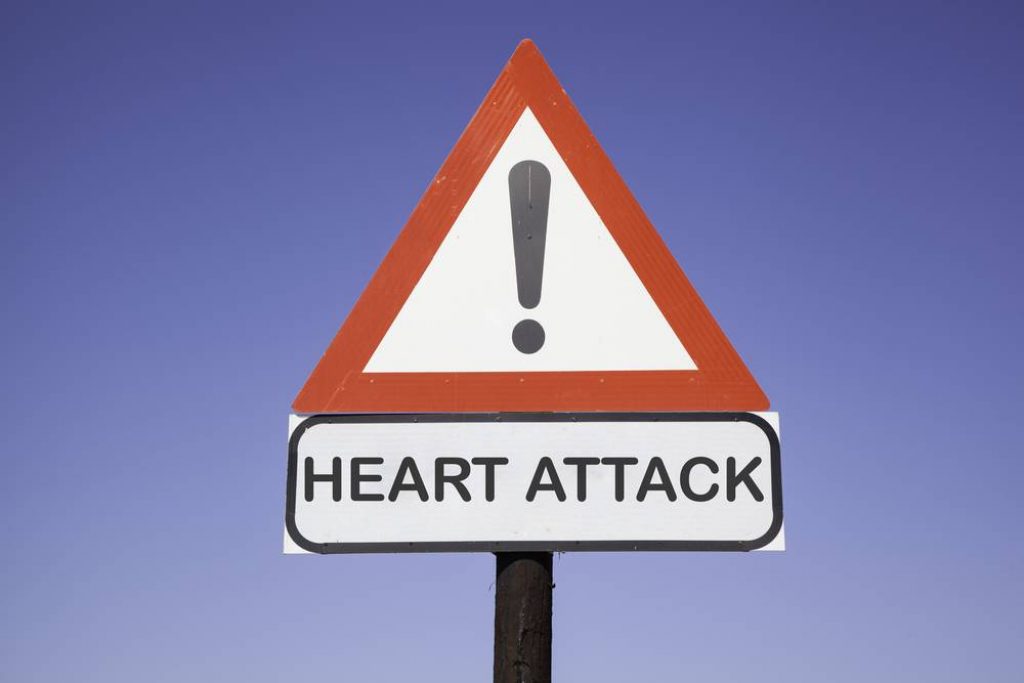
Warning Signs Of An Impending Heart Attack
Heart attacks are one of the most prevalent health/medical related fears amongst many people, and for very good reasons. Anyone in the general populace can experience a sudden and unexpected heart attack at any point of their lives, including children, and the cases vary in severity and frequency.
Related Topics (Sponsored Ads):
The causes vary in each individual, but some of the most common factors that can potentially lead to heart attacks include being very overweight, clogged arteries, asthma, heart disease and other heart – related conditions, diabetes, chronic stress, smoking, old age and poor diet. Regarding the early warning signs specifically, one of the most worrisome facts is that the signs can easily be mistaken for a number of other possible common illnesses and conditions, such as epilepsy, vertigo, heartburn, hypoglycemia, etc. Unfortunately, this is why it goes unnoticed, thus many people don’t get the urgent life-saving care they need to help prevent a full blown heart attack.
If you wish to significantly reduce your risk of falling victim to a heart attack, doctors and healthcare professionals recommend getting sufficient daily exercise, improving your diet, losing weight, quitting smoking and reducing your stress levels. If you or someone you know starts experiencing any of the impending warning signs, it’s crucial that you take action right away to prevent serious heart damage. The sooner, the better the outcome will be. It could truly mean the difference between life and death.
Listed below are some of the most important warning signs of an impending heart attack that you should never ignore.

Sudden Chest Pains
According to the American Heart Association, the very first symptom of a heart attack is most often a sensation of discomfort, pressure, squeezing, fullness, tightness or any other sudden pain in the center of your chest. The chest pains may come in waves lasting more than a few minutes at a time.
If you start feeling any sort of unusual and unexplainable pain or discomfort in your chest, reach for your phone and keep it handy. If the pain intensifies and spreads to other parts of your body, this is a medical emergency, so call 911 right away.
Sudden Dizziness
Many things can make you feel dizzy and disoriented, such as not drinking enough water, having low blood sugar levels, being in a highly elevated location like Colorado, skipping a meal, or simply standing up too fast. But sudden and abnormal dizziness or lightheadedness, coupled together with chest pain, may be a signal of a decrease in blood volume and a drop in blood pressure. This is an indication that a full blown heart attack may quickly occur, and requires immediate medical attention.
Heart Palpitations
When the heart lacks adequate blood or oxygen supply for all of its vital functions, it forces it to work harder, which can then lead to heart palpitations. According to Stoney Brook Medicine, the heart will go into distress when it lacks nutrient-filled blood, which then causes the sensation of alarming heart palpitations. If you feel like you’re having heart palpitations or your heartbeat seems irregular, make sure you contact your doctor right away.
Abnormal Sweating
Unless you’re going through menopause, suffering from general anxiety, or have just finished a vigorous session of exercise and workout, breaking out into a cold sweat or perspiring excessively is another major possible warning sign of an impending heart attack. During a heart attack, your nervous system activates a “fight or flight” response that puts you in survival mode, so you’ll start to sweat profusely. So if you’ve eliminated every other possible cause of the sweats, call 911 as quickly as possible.
Pain In Other Areas Of The Body
This may sound a bit strange, but heart attack related pain can actually occur in places other than the chest, such as the back, shoulders, arms, neck or jaw. This is another warning sign that, sadly, gets disregarded and misinterpreted as brain damage or muscle injuries all too often.
According to Cleveland Clinic, if there’s a serious life – threatening problem in your heart, such as a blocked artery, it can trigger the nerves in your heart to give off an alarm signal that something is very wrong. Considering the vagus nerve is also connected to the brain, chest, abdomen, and neck, you may feel those pain signals in other areas of the body aside from the heart region.
Shortness Of Breath
Shortness of breath can be a symptom of anxiety, asthma or just running a lot. But if walking up stairs or climbing up hills used to be a breeze, and you’ve recently been finding it harder and harder to breathe properly and normally, then seek emergency medical attention immediately. Although this doesn’t necessarily mean you’re about to have a heart attack at this very moment, it could indeed be a sign that your heart is in real danger. According to the AHA, shortness of breath might come with or without chest pain.
Final Thoughts
Whether you have any significant health conditions or not, knowing the many possible warning signs of an impending heart attack and how to respond to them is of vital importance. Possessing this knowledge can literally save your life, a loved one, or someone who happens to be near you.
Additionally, if you want to learn emergency first aid that can make all the difference while you await the arrival of a medical team, there are many professional and very educational courses, in person and online, that can help prepare you for heart attacks and other medical emergencies.




